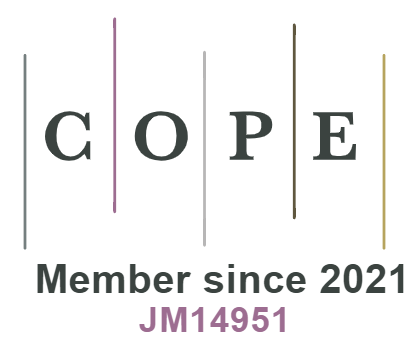Stan kompetencji i sprawności językowej 6‑letniego chłopca z sieroctwem społecznym. Studium porównawcze
DOI:
https://doi.org/10.18778/2544-7238.06.11Słowa kluczowe:
kompetencja językowa, sprawność językowa, socjalizacja, sieroctwo społeczne, deprywacja matczynaAbstrakt
W literaturze medycznej, psychologicznej i pedagogicznej podkreśla się, że brak zaspokajania podstawowych potrzeb psychicznych dziecka ma wpływ na jego rozwój somatyczny, powoduje zakłócenia w sferze emocjonalnej, opóźnia rozwój psychoruchowy. Kwestie te są poruszane jednak dość ogólnikowo, a wpływ sieroctwa społecznego na językowy rozwój dziecka na gruncie różnych nauk jest traktowany marginalnie – w logopedii stanowiąc swoiste novum.
Niniejszy artykuł dotyczy stanu kompetencji i sprawności językowej sześcioletniego chłopca z sieroctwem społecznym w porównaniu do chłopca w tym samym wieku, wychowanego w pełnej rodzinie, bez deprywacji podstawowych potrzeb fizycznych i emocjonalnych. Dokonano analizy porównawczej – ilościowej na podstawie Testu Rozwoju Językowego oraz jakościowej – z uwzględnieniem wszystkich podsystemów języka. Zainicjowane badania są badaniami wyznaczającymi nową perspektywę w logopedii – rozważanie o języku z uwzględnieniem aspektu środowiskowego, a szczególnie wpływ sieroctwa społecznego na rozwój językowy dziecka.
Pobrania
Bibliografia
Gerhardt S., 2010, Znaczenie miłości. Jak uczucia wpływają na rozwój mózgu, przeł. B. Radwan, Kraków: Wydawnictwo Uniwersytetu Jagiellońskiego.
Google Scholar
Grabias S., 1981, O ekspresywności języka. Ekspresja a słowotwórstwo, Lublin: Wydawnictwo Lubelskie.
Google Scholar
Grabias S., 1991, Kultura słowa a sprawności komunikacyjne, „Polonistyka”, nr 7, s. 419–429.
Google Scholar
Grabias S., 1997, Mowa i jej zaburzenia, „Audiofonologia”, nr 10, s. 9–36.
Google Scholar
Grabias S., 2019, Język w zachowaniach społecznych, Lublin: Wydawnictwo Uniwersytetu Marii Curie‑Skłodowskiej.
Google Scholar
Holmes J., 2007, John Bowlby i teoria przywiązania, przekł. J. Łaszcz, Gdańsk: Gdańskie Wydawnictwo Psychologiczne.
Google Scholar
Kania J.T., 2001, Szkice logopedyczne, Lublin: Wydawnictwa Szkolne i Pedagogiczne.
Google Scholar
Łukasiewicz A., 2003, Deprywacja sensoryczna i deprywacja środowiskowa. Ich wpływ na rozwój aktywności komunikacyjnej, [w:] A. Jurkowski (red.), Z zagadnień współczesnej psychologii wychowawczej, Warszawa: Wydawnictwo Instytutu Psychologii Polskiej Akademii Nauk, s. 187–206.
Google Scholar
Matejek J., 2014, Kompensacja sieroctwa społecznego w działalności Rodzinnych Domów Dziecka: wybrane aspekty metodyczne, „Labor et Educatio”, nr 2, s. 91–103.
Google Scholar
Obuchowska I., 2005, Psychologia kliniczna dzieci i młodzieży – wybrane zagadnienia, [w:] H. Sęk (red.), Psychologia kliniczna, t. 2, Warszawa: Wydawnictwo Naukowe PWN, s. 25–46.
Google Scholar
Ruszel M.E., 2011, Sieroctwo duchowe dziecka, „Studia Gdańskie”, t. XXVIII, s. 151–157.
Google Scholar
Smoczyńska M., Haman E., Czaplewska E., Maryniak A., Krajewski G., Banasik N., Kochańska M., Łuniewska M., 2015, Test Rozwoju Językowego (TJR), Warszawa: Instytut Badań Edukacyjnych.
Google Scholar
Szymborska A., 1969, Sieroctwo społeczne, Warszawa: Wydawnictwo Wiedza Powszechna.
Google Scholar
Pobrania
Opublikowane
Jak cytować
Numer
Dział
Licencja

Utwór dostępny jest na licencji Creative Commons Uznanie autorstwa – Użycie niekomercyjne – Bez utworów zależnych 4.0 Międzynarodowe.












